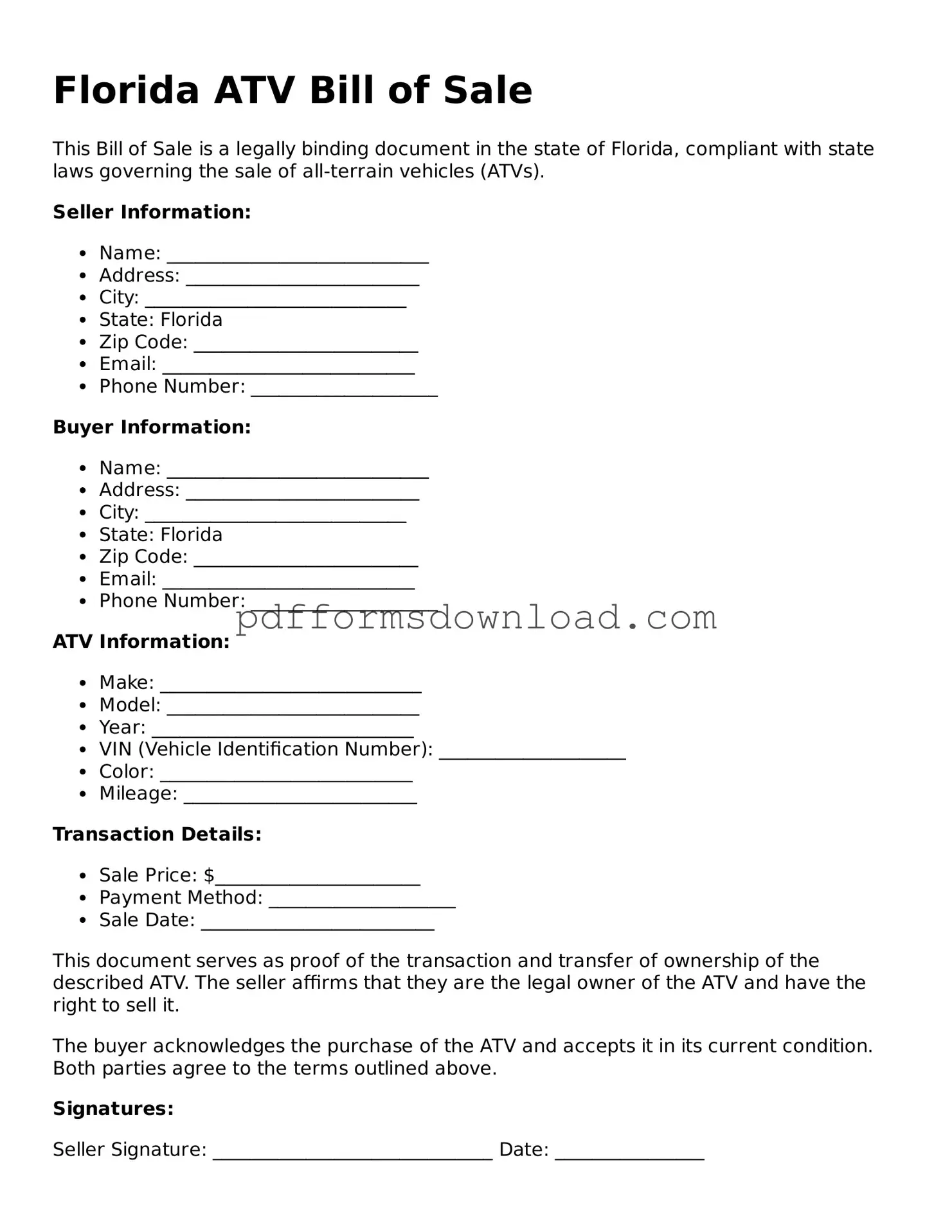What is an ATV Bill of Sale in Florida?
An ATV Bill of Sale is a legal document that records the transfer of ownership of an all-terrain vehicle (ATV) from one party to another. This form includes essential details about the transaction, such as the names of the buyer and seller, the vehicle's identification number (VIN), and the sale price. It serves as proof of the sale and can be used for registration purposes.
Is an ATV Bill of Sale required in Florida?
While it is not legally required to have a Bill of Sale for an ATV transaction in Florida, it is highly recommended. Having this document protects both the buyer and seller by providing evidence of the sale. It can also simplify the registration process with the Florida Department of Highway Safety and Motor Vehicles.
What information should be included in the ATV Bill of Sale?
The ATV Bill of Sale should include the following information: the names and addresses of both the buyer and seller, the date of the sale, a description of the ATV (including make, model, year, and VIN), the sale price, and any terms or conditions related to the sale. Both parties should sign the document to validate the transaction.
Can I create my own ATV Bill of Sale?
Yes, you can create your own ATV Bill of Sale. However, it is crucial to ensure that all necessary information is included and that it meets any state requirements. Using a template or form specifically designed for Florida can help ensure that you cover all essential details.
Do I need to have the ATV Bill of Sale notarized?
Notarization is not required for an ATV Bill of Sale in Florida. However, having the document notarized can add an extra layer of authenticity and may help in case of future disputes. It is always a good practice to keep a signed copy for your records.
What should I do with the ATV Bill of Sale after the transaction?
After the transaction, both the buyer and seller should keep a copy of the ATV Bill of Sale for their records. The buyer will need this document when registering the ATV with the state, while the seller should retain it as proof of the sale and to protect against future liability.
How does the ATV Bill of Sale help with registration?
The ATV Bill of Sale serves as proof of ownership when registering the vehicle with the Florida Department of Highway Safety and Motor Vehicles. It provides necessary details about the transaction, which helps streamline the registration process and ensures that the new owner can legally operate the ATV.
What if the ATV has a lien on it?
If the ATV has a lien, it is essential to address this before completing the sale. The seller should disclose the lien to the buyer, and the lien must be satisfied before the transfer of ownership. The Bill of Sale should indicate that the lien has been cleared, or the buyer should ensure that the lien is released during the transaction.
Can I use an ATV Bill of Sale from another state?
While you can use an ATV Bill of Sale from another state, it is advisable to use a Florida-specific form. Each state may have different requirements and formats, so using the appropriate form can help ensure compliance with Florida laws and regulations.
What happens if I lose the ATV Bill of Sale?
If you lose the ATV Bill of Sale, you can create a new one, but both parties should agree to the details. It is also wise to keep a digital copy or multiple physical copies in a safe place to prevent future loss. If necessary, you may also seek a replacement from the original seller.

